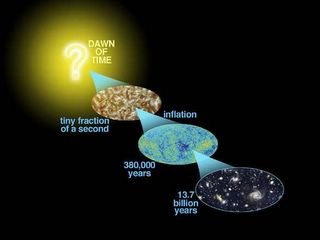Evolution, Pt. 3: What Is Science?

One of the seminal questions in the entire evolution debate is, "what qualifies as science?" The majority of the scientific community adheres to a view frequently called methodological naturalism (MN). In this view, the scientist must assume naturalism (the belief that the universe is a closed, physical system) for methodological purposes. I.e., a scientist cannot include supernatural agents or causes, viz., God, in the range of possible explanations for the phenomena being studied. This is not to be confused with metaphysical naturalism (MphN), which is the view that such supernatural agents do not, in fact, exist. This would be the equivalent of atheism, which a significant percentage of scientists would not embrace.
The justification for MN is typically a pragmatic one. "If we start positing God as an explanation for phenomena, then scientific research will be stunted. What further explanation or inquiry would be needed?" I can sympathize with this view, but I must bring up one issue that concerns me. While I agree that we should pursue naturalistic explanations whenever possible, is there no point at which we would accept a supernatural one? What kind of evidence, or lack of evidence, would be necessary to justify a supernatural explanation? If you hold that there is no possible scenario in which such a conclusion would be warranted, i.e., supernatural explanations are disqualified a priori, then doesn't this seem like unscientific prejudice? Don't we always follow where the evidence leads, no matter what?
I would welcome the thoughts of my more enlightened scientific brethren here. I am a mere philosopher, and I am susceptible to error in scientific matters.


3 Comments:
Okay. No one has commented yet, thus leaving your argument undiscussed and your self worth plummeting. We can't have that.
I cannot address your assertion regarding the majority of the scientific community adhering to the methodological naturalism view. Though I consider myself a scientist, I did not take any courses that dealt specifically with the philosophy of science. I will say, the view makes sense on its face.
To your questions. It is not the role of science to entertain supernatural explanations because they cannot be proved. Thus, excluding supernatural explanations a priori is not unscientific. It is the role of science to provide the simplest possible explanation for observable phenomena. It is the role of Faith to ascribe responsibility for these explanations to the supernatural. For those who do not adhere to any particular Faith, they have one less mental manipulation to make.
History has shown that science will make discoveries that run counter to the view of the Faithful. The Faithful will adapt, perhaps after much wringing of hands, and the Faith and science will move on until the next discovery and period of hand wringing.
Those are my musings on this topic. I reserve the right to change my opinion at any time though.
Joel -- I appreciate your thoughtfulness.
Imagine science & revelation or science & philosophy like a young married couple. When there is a conflict, should the wife always give in to the husband and admit she was wrong, regardless of the subject matter? I think you and I would have intuitions that say, "no." The just and reasonable approach is to determine the truth and resolve the conflict accordingly -- whoever ends up being in the wrong.
Sometimes I think science is like the husband who thinks he is always right.
Noturus,
What would be an example of a scenario where supernatural explanation would be justified?
Post a Comment
<< Home